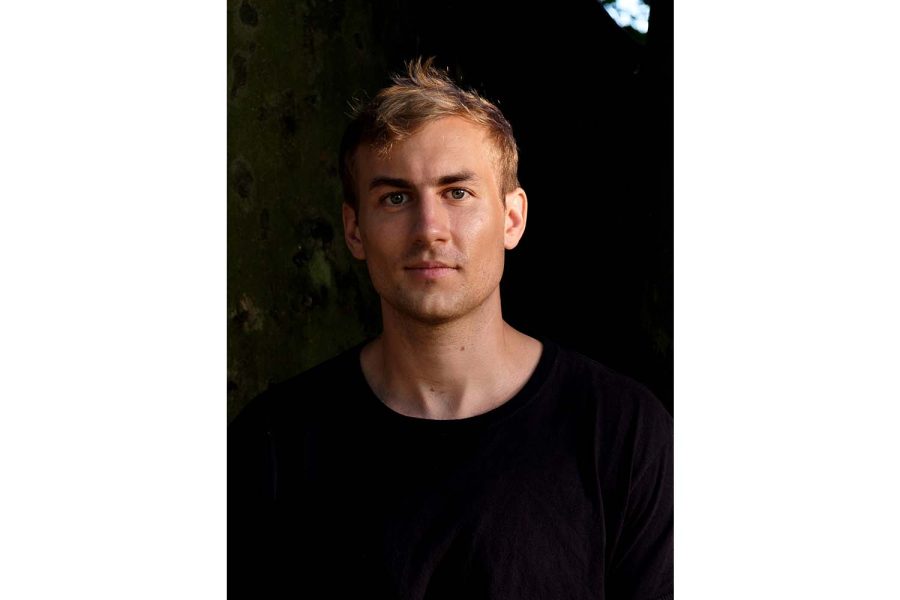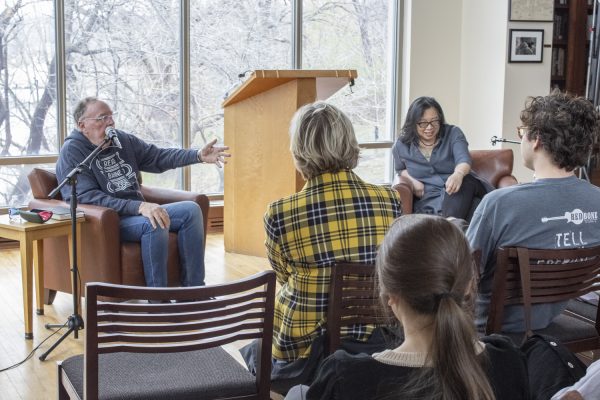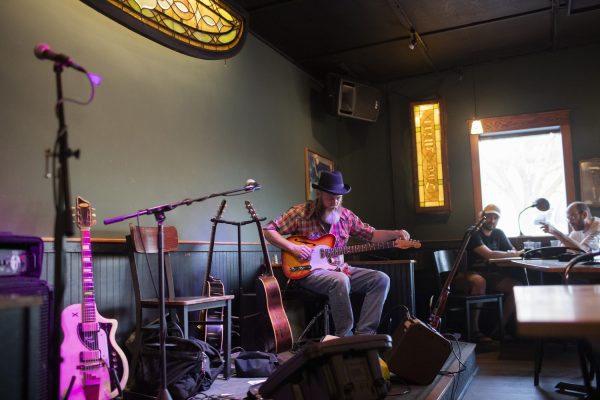Ask the Author: Mark Prins
Mark Prins is a recent graduate of the University of Iowa Writers’ Workshop. He spoke with The Daily Iowan about his new novel The Latinist, its classical references, and his writing process.
January 17, 2022
Mark Prins is a recent graduate of the University of Iowa Writers Workshop. Following his graduation he went on to teach for a year at UI. Prins’ new novel The Latinist loosely parallels the Latin Greek myth of Apollo and Daphne as modern-day characters Tessa Templeton and her professor Christopher Eccles explore love and obsession. The Latinist came out on Jan. 4 and there will be a virtual book talk at Prairie Lights with his former professor Margot Livesey on Jan. 27.
(This interview has been edited for length and clarity).
DI: What inspired you to reimagine a myth for your first novel?
Prins: I would say that as a young person in middle school and high school, I was kind of a Latin nerd. My idea of fun was translating blocks of Virgil’s Aeneid into English, which as you can imagine won me many friends in high school. So, I think there was always a part of me that wanted to be someone who studied the classics. I loved that literature when I was growing up. I didn’t end up taking that route. I ended up becoming a writer, but to some degree there was an element of wish fulfillment.
DI: What did your writing process look like for The Latinist?
Prins: The whole first draft was written in Iowa City. I lived on East Jefferson Street and had a little bay window that I wrote most of the first draft on. Then the last part of the draft I was on North Dubuque and Brown Street. There was also a lot of research involved. Tessa is a young woman – and I’m a youngish man. She’s from Florida, I’m from the East Coast. Chris is a middle-aged man from the county of Hampshire, England where I’ve never been in my entire life. So, there was a lot of research to bring the characters alive. There’s a scene that takes place on an archeological dig and I tried to write that without research but failed so many times that I ended up finding someone who runs a field school for archeology students in Spain at a former Roman colony.
DI: Do you have any pre-writing rituals – things that helped you complete your book?
Prins: I would say that the biggest thing that helped me for my writing ritual was that it takes such a long time to write a novel. There are going to be periods where you aren’t succeeding, where you feel like you’re going backwards. What I discovered was that if I had a calendar, a wall calendar, at the beginning of every week I could write in how many words I had to write for each day. Then, at the end of each day I would write in how many I actually wrote and somehow it shamed me into always doing it.
DI: If you could describe The Latinist in a word or phrase, what would it be and why?
Prins: The six word one we had was “obsessive academics will stop at nothing.” But I think you could say it’s a novel about obsession and I think that applies to both characters.
DI: What is your personal favorite part of the book?
Prins: Well, I don’t want to give too many spoilers — I will say that the most fun part to write was probably the ending. The ending is quite dramatic. A lot of people have said that they’ve been surprised by it and have found it hard to put down during the last 40 or so pages. I wrote it very fast sitting at that window overlooking Brown Street. It was a thrill to write, and I hope that it will be a thrill to read.
DI: Is there anything else you would like to say about your new novel?
Prins: Even though it’s a book that takes place in Oxford and Italy, it’s a book that, to me, is very, very inextricably and deeply connected to Iowa City. I will never be able to look at this book without thinking about the time that I spent in Iowa City writing it.













